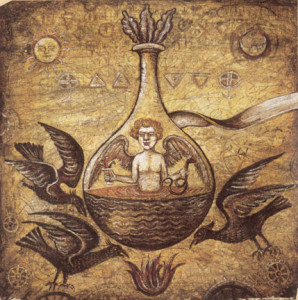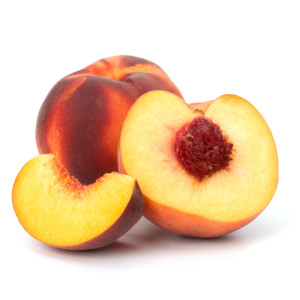MEEKNESS
Small group devotion
Each week we’ll be digesting a different aspect of the fruit of the Spirit. This week: MEEKNESS. We’ll explore times when we feel out of control, and what we do about it.
Opening question: Share a time you’ve felt out on control. How did you feel? How did you get through it?
If some of your group was at the Living Room, try recap what you remember. What stood out to you?
Before you read the Bible passage, what is a yoke? What was used for? What does “meek” mean? (See Leader’s Notes 1)
Read Matt 11:25-30
Any initial reactions to the passage? Or questions that arose?
What stresses, anxieties or uncertainties surround you in your life? (See Leader’s Notes 2)
 OPTIONAL QUESTION: If you want your group to do some pre-loading before meeting, here is the article that Jordan referenced on Sunday. It talks about the “age of uncertainty” in which we live. Jonathan Fields uses the term “Alchemy of Fear” to describe how we can use that fear and uncertainty to our advantage.
OPTIONAL QUESTION: If you want your group to do some pre-loading before meeting, here is the article that Jordan referenced on Sunday. It talks about the “age of uncertainty” in which we live. Jonathan Fields uses the term “Alchemy of Fear” to describe how we can use that fear and uncertainty to our advantage.
OPTIONAL QUESTION: How have you negotiated anxious or stressful situations in your life? What do you thinks Fields means?
Jordan talked about two different approaches to stress and uncertainty. One is to wear your own yoke, to try and do everything yourself. The other is to throw off the yoke altogether e.g. get drunk, stoned, loose control. Which (if any) of these do you think you err towards? How do you protect yourself from either of these extremes?
But Jesus says to put on his yoke which is easy and light. Why do you think Jesus’ yoke is easy and light?
Jesus said “I am meek and humble in heart”. What does it look like to be meek? (See Leader’s Notes 3)
Jordan described prayer as “a radically counter-cultural act” because “it’s the act of learning to be dependent on someone other than yourself”. Talk about your prayer habits. Do you find it hard to pray? Why is that?
Finish by praying together!
Leader’s Notes:
- A yoke was a wooden apparatus placed on oxen in order to carry heavy burdens/do agricultural work. “Meek” is often translated in the bible as “gentle”. Famously it is one of the beatitudes: “Blessed are the meek for they shall inherit the earth”. Meekness describes being dependent, or being submissive. In this sense it’s a really sensitive and difficult term because we shouldn’t be encouraging abusive or violent relationships and using meekness as justification. But on the other hand, at the heart of the Christian gospel is the call to be meek — to submit to one another in love (as the Son does to the Father in everything).
- These could be personal and individualised things e.g. family stresses, work problems. But you may also like to introduce broader cultural/global movements e.g. climate change, terrorism, Brexit, career changeability etc.
- An important clue is in vv.25-26. Jesus prays to the Father. To be truly meek is to learn that we are not autonomous, independent individuals. We are creatures created to be in relationship (with God and each other). Jesus himself, the very Son of God, receives everything from the Father. He brings everything to the Father in prayer and he is dependent on his life from the Father and the Spirit. Within Godself there is mutual self-giving of love. This is what it looks like to be truly meek — truly submissive. As we learn to be dependent beings made for relationship, we learn that it’s ok not to be in control. In this moments of chaos and bewilderment we are confronted with our own dependency and need to rely on God and each other.
Saying that, there are many in this world to have “meekness” thrust upon them because of abusive or oppressive relationships. We should be careful not to romanticise or justify this injustice. Becoming meek does not mean endorsing injustice. It means fighting for a world in which we all mutually submit to one another in love. - Sermon script:
Master Yoda
“Come to me, if you’re weary and burdened,” Jesus says,
“and I will give you rest.”
What sort of rest do you need tonight?
(If it’s sleep, you can have the next 15 mins…
that’s my gift to you!)
Actually, probably many us need physical rest.
We are part of a “wired” generation.
A recent article about sleeplessness in the U.S.
claimed at least 40 million Americans
suffer from some sort of sleep disorder.
I couldn’t find up to date data in the New Zealand context,
but many of the cultural trends that cause lack of sleep
are prevalent here too.
Which of these can you tick off for yourself?
School or job related pressures,
family or marriage or friendship problems,
illness or death of loved ones;
drinking caffeine in the evening…woops;
irregular morning or evening schedule (young people in particular!),
looking at bright electronic screens before bed,
eating big meals before bed,
exercising before bed;
interrupted sleep patterns…
the list could go on!
Apparently “parents” and “teenagers”
are at particular risk of lack of sleep…
pretty broad categories that includes a good chunk of people here.
What disturbed me is how closely linked sleeplessness is
with stress and depression.
So much so that one can be a contributing cause of the other and vice versa.
And these things
— lack of sleep, high rates of stress, anxiety, and depression —
all this is reflective of the age of uncertainty in which we live.
The future is headspinningly unpredictable:
Trump, Brexit, terrorist attacks, mass migration,
economic meltdowns, climate change…
these realities confront us on a daily basis.
On top of that many of us have student loans,
struggle to afford a first home,
will likely have numerous career changes in our life,
and will be supporting a growing number of retirees
as generation baby-boomer receive their gold cards.
Have I painted a gloomy enough picture yet?
Are you thoroughly depressed now?
What a buzz-kill!
But that’s the thing —
this is the subconscious reality which surrounds us everyday.
We may pretend it’s not there,
but it doesn’t mean the stress that results isn’t real.
One philosopher, Jonathan Fields,
says the solution to all this uncertainty and stress is
“the Alchemy of Fear”.
It’s basically using fear and uncertainty to our advantage.
He says:
“Rather than grasping futilely
after a sense of certainty that’ll never come,
learn how to dance with the unknown.
It’s possible, it just takes a bit of work.
Then look for the opportunity
that always goes hand in hand with upheaval.”
In principle it sounds empowering.
But the idea of using fear to our advantage
did make me think of this famous quote
from a wise mentor:
Yoda: “fear leads to anger, anger leads to hate, hate leads to suffering”
Thank you, Master Yoda.
It’s easy to see this demonstrated in the world at the moment.
And it’s easy for us to get sucked into it ourselves.
So when Jesus says, “I will give you rest” from all this…
well, it’s a big thing to promise in today’s uncertainty and paranoia.
The Meek One
Interestingly, this Jesus who promises rest
goes on to say, “I am gentle and humble in heart.”
The word “gentle” is the same word for “meek”.
Meek is one of those biblical words
which we don’t really hear in everyday conversation today.
So what is meekness?
(besides obviously the quality to describe Sam Meek,
one of our parishioners)
Well, perhaps the first thing to say about meekness
is that it is an odd word to use to describe the Son of God!
But Jesus says: I am meek and humble in heart.
One of my favourite authors is Fyodor Dostoevsky.
He has a short story called the Meek One.
The Meek One is a story about a girl in 19th century Russia.
She is poor, she is unable to get work, she is desperate.
Slowly she pawns her most prized possessions.
Eventually she has nothing left so she pawns herself —
she marries a man who is a scumbag,
someone who preys on the poor
and uses their misfortune to his advantage.
It’s a tragic story and I won’t tell you how it ends.
But for Dostoevsky, meekness is epitomised in this poor girl
who spends her life submitting to the cruelty of the world
…just to get by.
So what does it mean that Jesus calls himself meek,
and that earlier in Matthew’s gospel
at the beginning of the famous Sermon on the Mount,
Jesus says: Blessed are the meek
for they will inherit the earth?
What does it mean that meekness
is an outworking of the fruit of the Spirit?
I think it means learning to not be in control…
That we are in control is a lie of our society,
in which the definition of success or freedom
is to be a totally autonomous, independent individual
— to be in control, to be able to make your own choices.
To yoke or not to yoke.
Often this is reflected in two ways.
And to explain this, let’s use the image of the yoke.
It comes up in our reading today.
A yoke is a wooden apparatus used on oxen and other beasts of burden
to help them carry heavy loads.
In ancient Jewish writings, the yoke was an image for the law.
The law was a “burden” that was placed on the Israelites
in order to help them maintain that control,
to maintain their holiness and closeness to God.
In a world that had fallen away from God,
the law became the means to restore.
But it is a weighty burden.
And that’s because it’s dependent on our works —
by doing the right things, by working harder,
by obeying the rules — we can regain control
and restore ourselves back to God.
Whether it be the law in ancient Israel
or Jonathan Fields’ “Alchemy of Fear” today,
there’s this innate desire in us to take control of our surroundings,
to take things into our own hands.
We can’t beat the uncertainty of our age, the fear and the anxiety —
so let’s take back control, let’s use that uncertainty to our advantage.
It’s not totally bad advice actually (I’m taking him out of context),
but the problem is that if everyone takes control
then they have to take the control from somewhere (from someone).
And you know that’s going to end well.
Thousands of years of human history witness to it.
The lie of our society is that
we are and can all be autonomous, independent individuals
— if we just work hard enough.
The great irony of Dostoevsky’s story
is that the thing that frees the girl from poverty
— her scumbag husband —
is the very thing she hates most in the world,
the very thing that makes her all the more aware of her enslavement.
For millions in the world,
meekness is not something willingly chosen,
meekness is ruthlessly thrust upon them
as they are forced to submit to the powerful
and the ones in control.
…
On a lighter note…
a find a similar thing with facebook actually.
Facebook and the internet in general
has revolutionised communication.
It has brought the world to our bedroom.
But the thing that grants us immense freedom,
is the very thing that limits my friendships and my reality
to a newsfeed on a screen!
…
So that’s the first way, to try and take control
by our own means —
to use the yoke, and the sweat of our brow
to work harder and attain freedom and autonomy.
The second way is to remove the yoke altogether.
The stresses of life are too overwhelming
so I’ll lose control altogether.
I’ll get totally wasted, or stoned,
or fill the void with sex or other addictions or substances.
Removing the yoke altogether
is a popular approach for many young people today —
it’s intentionally losing control
so that we don’t have to acknowledge
that we never had it in the first place!
…which is perhaps why Jesus doesn’t say,
I’ll remove your yolk, but,
“Take my yoke upon you and learn from me…
For my yoke is easy and my burden is light.”
Being a Christian does not mean bearing no burden.
It means bearing the burden of Christ.
A yoke was a training tool for oxen:
while restricting their freedom,
it trained them to do productive and good work.
In a similar way, receiving God’s unconditional grace
doesn’t mean we can do whatever we like,
behaving like wild, out of control animals…
but we are trained in the way of meekness and humility.
…which I believe is the way to being truly human…
being vulnerable and dependent on others
is at the heart of what it means to be human.
Christ himself is the Meek One,
the one who is forever dependent
on the Father and the Spirit for his life;
the one who is born in a manger as a helpless baby;
the one who submits to the powers of our world
even to the gruesome and painful death;
the one who, even in his victory, is eternally meek —
sharing his life with each of us that we can live as well.
This is not the picture of an autonomous, independent individual
who doesn’t need anyone else!
But this is the picture of God
and it is the picture of what it means to be truly human:
loving, compassionate,
and hopelessly, wonderfully out of control.
Amen.
Response
So…how do we become meek?
It’s so hard in a society where being self-sufficient is so important.
And that comes into church as well.
We put on our best face so that people will think we’re ok!
Our reading today, began with a prayer of Jesus to the Father:
“I praise you, Father, Lord of heaven and earth,
because you have hidden these things from the wise and learned,
and revealed them to little children.
Yes, Father, for this is what you were pleased to do.”
What if this wasn’t so much an introduction
to the conversation about meekness…
what if prayer is actually the means to become meek?
Prayer is actually a radically counter-cultural act
because it’s the act of learning to be dependent
on someone other than yourself.
Jesus was gentle and humble
because in everything he prayed to his Father.
So we’ll have a time of prayer now:
Jesus’ prayer is on the screen if you want to pray it for yourself.
Perhaps you know someone close by that is going through something
and you might like to offer to quietly pray with them.
We’ll spend ___minutes in prayer
and then I’ll draw it to a close.
Pastoral prayer time
Loving God,
thank you for Jesus who is meek and humble in heart.
And thank you that your Spirit is working in us to make us meek.
Reignite in us a desire to pray…
not to demand, and not out of obligation,
but as a rebellious act of learning to be dependent.
We pray for those in our community and further afield
who have no choice but to be meek —
it is thrust upon them
by abuse, by oppression, by violence, and power imbalance,
at home, at school, and in the workplace.
We pray bring an end to their suffering,
may they be comforted in their meekness,
may they be strengthened to endure,
and may they be freed from their enslavement.
In the hope of the resurrection we proclaim:
Blessed are the meek,
for they shall inherit the earth.
In Jesus’ name,
who is eternally meek for us,
Amen

